NI 100: How NI's first election shaped its future
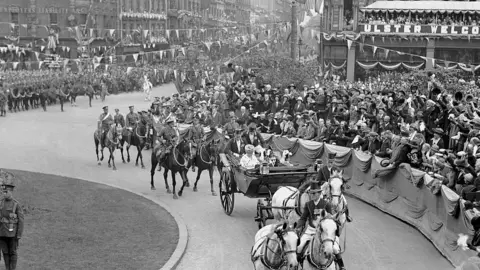 Getty Images
Getty ImagesIt is exactly 100 years since the first election was held in Northern Ireland.
On 24 May 1921, voters went to the polls across the newly-created state and elected 52 members to a new parliament in Belfast.
An overwhelming majority of the successful candidates, 40, were unionists.
Also elected were six Sinn Féin representatives, including Michael Collins and Éamon de Valera, although they refused to take their seats.
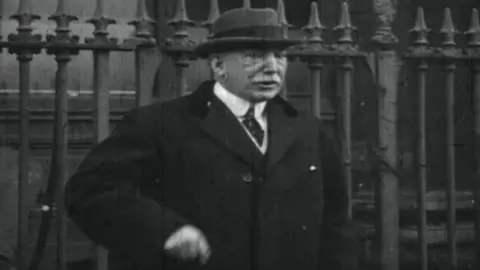 British Pathé
British PathéUnionists hailed the result as a significant victory and believed it copper-fastened the new border, following the partition of Ireland.
However, with six seats going to Sinn Féin and six to nationalist candidates, the political divide within the new state was clear.
The election, which used a proportional representation system, was held exactly three weeks after Northern Ireland became a legal entity on 3 May and the poll marked a tangible sign of the new state taking shape.
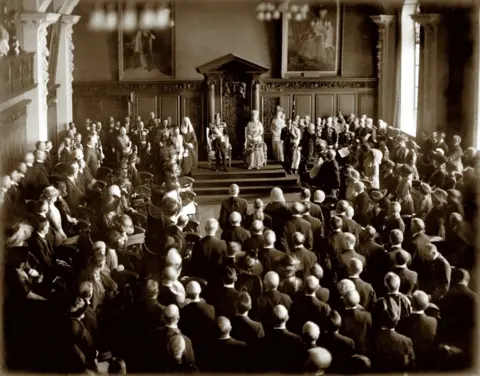 Proni - SO1/Z/4
Proni - SO1/Z/4Indeed, some historians have suggested it could be argued that May 24 is the political birthdate of Northern Ireland, rather than May 3 which was more of a technical milestone.
The parliament was similar to the Westminster model with an upper house, the Senate and a 52-member lower chamber, the House of Commons.
Two weeks after the May election, the Commons met for the first time in Belfast and unionist leader Sir James Craig was appointed Northern Ireland's first prime minister.
Just over half a million people voted in the election, which amounted to almost 90% of those entitled to vote at the time.
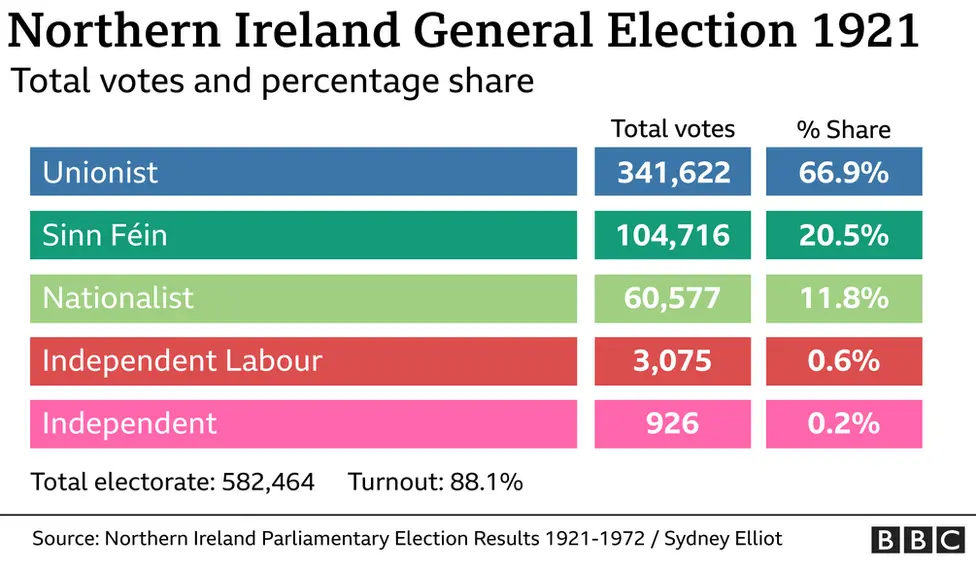
Historian Dr Éamon Phoenix said the unionist triumph was not surprising.
"Unionism was a class alliance between the shipyard worker, the small farmer and the industrialist in the big house - they were all together," he said.
"Nationalism was divided - you had a rift between Joe Devlin's [nationalist] home rulers and Sinn Féin who looked south and hoped to undo these partition arrangements.
"The result was an overwhelming unionist victory."
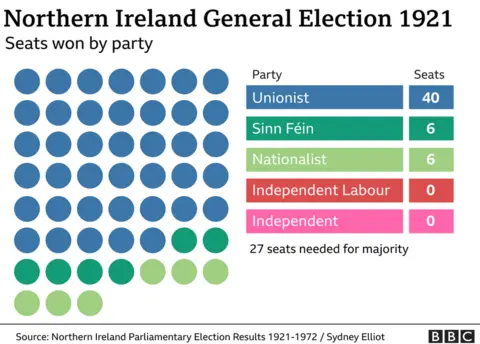
Dr Phoenix said the absence of an opposition within the new Commons proved to be significant.
"It wasn't until the mid-late 1920s that the nationalists took their seats in the Northern Ireland Parliament and, of course, this was a major problem because the groundwork of the state in terms of law and order, education had been laid down in those critical, bitter violent years."
The new parliament was set up by the 1920 Government of Ireland Act which divided the island in two, with separate parliaments in Belfast and Dublin.
The 128-seat House of Commons in the newly-created Southern Ireland only met briefly as Sinn Féin boycotted it, even though it won almost all of the seats.
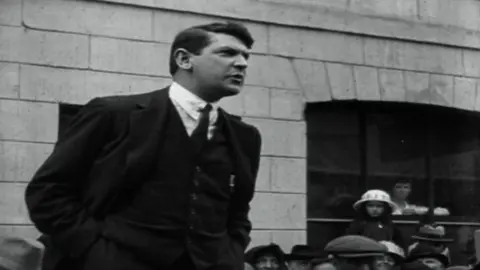 British Pathé
British PathéThe party treated the election in the south as a second election to the independent parliament, the Dáil, which was set up in Dublin in 1919 in defiance of British rule.
In total, 124 Sinn Féin candidates were elected unopposed, along with four southern unionists elected for the University of Dublin (Trinity College).
No actual polling took place as the candidates were unopposed.
'Partition a reality'
The elections took place against a background of violence, with sectarian tensions high and the Anglo-Irish war raging.
Within two months, a truce had been agreed in the war and negotiations began which led to the Anglo-Irish Treaty in December 1921, and more political changes.
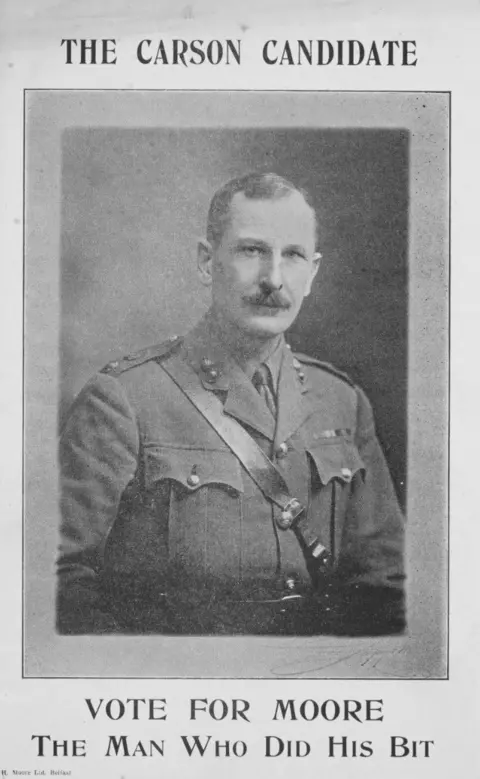 Proni - D1327/16/2/1
Proni - D1327/16/2/1However, the border remained, and the May 1921 election had helped to secure it.
Historian Dr Marie Coleman, a member of the panel of historians advising the UK government on the centenary of Northern Ireland, recently wrote about the election.
She stated: "Home Rule had finally been implemented in Ireland, but ironically it was the Ulster unionists who had been so strongly opposed to the idea a decade previously upon whom it was conferred.
"The partition of Ireland was now a reality."

The BBC News NI website has a dedicated section marking the 100th anniversary of the creation of Northern Ireland and partition of the island.
There are special reports on the major figures of the time and the events that shaped modern Ireland available at bbc.co.uk/ni100.
Year '21: You can also explore how Northern Ireland was created a hundred years ago in the company of Tara Mills and Declan Harvey.
Listen to the latest Year '21 podcast on BBC Sounds or catch-up on previous episodes.

Image credits
- SO1/Z/4 - With kind permission of the Deputy Keeper of the Records, Public Record Office of Northern Ireland
- D1327/16/2/1 - With kind permission of the Ulster Unionist Council and the Deputy Keeper of the Records, Public Record Office of Northern Ireland
